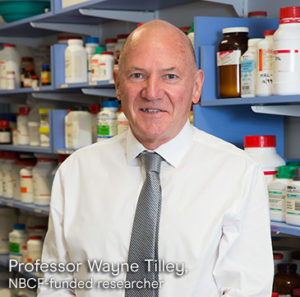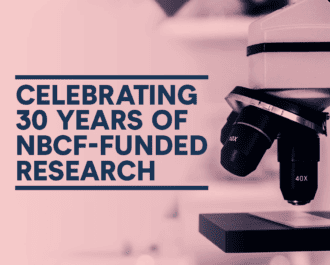 Treat
Treat
Estrogen receptor-positive (ER+) breast cancer affects over 65% of women with the disease. Unfortunately, it is also common for ER+ tumours to become resistant to first-line ER-targeting drugs, a phenomenon known as endocrine resistance. It is thus important that new treatment options are developed to treat these resistant cancers.
One class of drug that has raised great interest in breast cancer treatment is the selective androgen receptor (AR) modulators (SARMs). Enobosarm is one example of a SARM – an early impetus for developing SARMs was osteoporosis. SARMs work by stimulating androgen receptors in a similar way to natural androgen hormones. However, unlike androgens, enobosarm does not have masculinizing side effects in women.
A recent Phase II clinical trial showed that enobosarm was effective at treating metastatic ER+ and AR+ breast cancer, with patients reaching stable disease. So far this is the only new generation AR targeted therapy to achieve this outcome. The drug was well tolerated and not associated with any toxicity. The Phase II study looked at dosing and safety, and was the only AR target therapy trial where the endpoint was achieved.
Another study is now underway in the UK, called the Emerald trial, which is examining whether enobosarm is also beneficial for women with newly diagnosed ER+ breast cancer. If so, this drug could then be a potential treatment for both early and late stage disease, providing patients with more treatment alternatives at any stage of their journey.

“Our data show that activation of androgen receptors with enobosarm (or a similar drug) can inhibit tumours that are endocrine-resistant,” he said. “This opens the door for a new treatment avenue that could significantly prolong life.”
Professor Tilley emphasised the importance of patient well-being whilst being treated for breast cancer. ER-target treatments for hormone-sensitive breast cancers are often associated with debilitating side effects, leaving patients feeling miserable and even ceasing to take the therapy.
“We have been advocates for SARMs because they not only have the potential to prolong life, but they have the potential to make patients feel better while on therapy,” he explained. “This reduction in negative side effects is because the drugs promote bone, muscle and brain health.”
The pilot study of enobosarm was funded by the NBCF in Australia. Professor Tilley thanked the supporters of his work, saying “Funding from the NBCF is a vital part of our research program. Thank you to the NBCF and the patients who contributed to our studies for supporting our efforts to provide more effective and tolerable means to treat this disease.”
More News Articles
View all News Treat
Treat

